Microbes
-
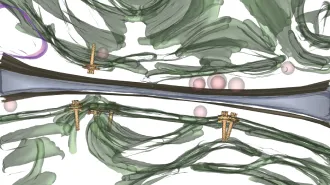 Microbes
MicrobesNew images reveal details of two bacteria’s molecular syringes
It’s unclear exactly how these species use their tiny injectors, but learning how they work could lead to nanodevices that target specific bacteria.
-
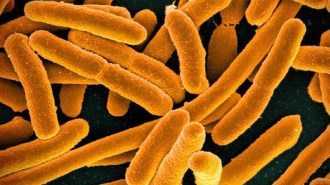 Life
LifeSome E. coli set off viral grenades inside nearby bacteria
A bacterial toxin called colibactin awakens dormant viruses embedded in bacterial DNA, but its ecological role is still unknown.
-
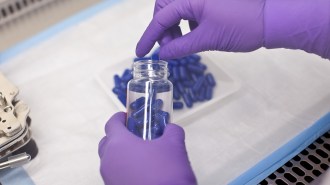 Health & Medicine
Health & MedicineFecal transplant pills helped some peanut allergy sufferers in a small trial
In a small study, a one-day fecal microbiota transplant allowed some peanut-allergic adults to safely eat one to two peanuts several months later.
-
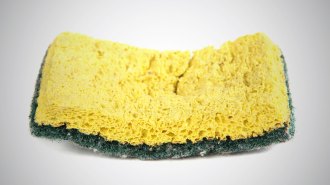 Life
LifeWhy kitchen sponges are the perfect home for bacteria
Sponges are remarkably diverse hot spots for bacteria, in part because of the mixed-housing environment that the tools offer their tenants.
By Anna Gibbs -
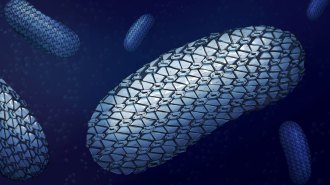 Microbes
MicrobesA chain mail–like armor may shield C. difficile from some antibiotics
Examining the structures that protect Clostridioides difficile from medicines could help researchers find new ways to target and kill the bacteria.
-
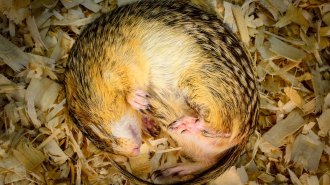 Animals
AnimalsGut microbes help some squirrels stay strong during hibernation
Microbes living in the critters’ guts take nitrogen from urea and put it into the amino acid glutamine, helping squirrels retain muscle in the winter.
-
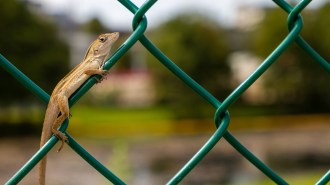 Animals
AnimalsUrban animals may get some dangerous gut microbes from humans
Fecal samples from urban wildlife suggest human gut microbes might be spilling over to the animals. The microbes could jeopardize the animals’ health.
-
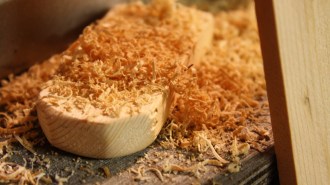 Chemistry
ChemistryA disinfectant made from sawdust mows down deadly microbes
Antimicrobial molecules found in wood waste could be used to make more sustainable, greener disinfectants.
-
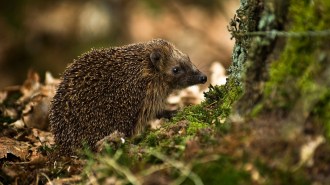 Microbes
MicrobesDrug-resistant bacteria evolved on hedgehogs long before the use of antibiotics
A standoff between bacteria and antibiotic-producing fungi living on hedgehogs may have led to the rise of one type of MRSA some 200 years ago.
-
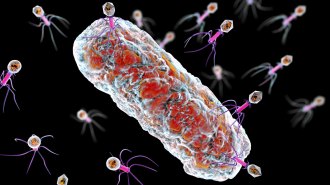 Microbes
MicrobesA bacteria-virus arms race could lead to a new way to treat shigellosis
As bacteria that cause shigellosis evolve to escape a virus, the microbes may become less deadly, a hopeful sign for “phage therapy.”
-
 Animals
AnimalsCicada science heats up when Brood X emerges. 2021 was no exception
Mating mobs of big, hapless, 17-year-old cicadas made for a memorable spring in the Eastern United States
By Susan Milius -
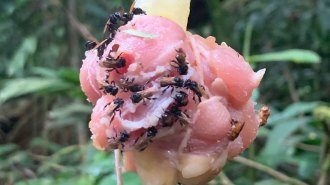 Animals
AnimalsGut bacteria let vulture bees eat rotting flesh without getting sick
Acid-producing bacteria in the gut of vulture bees let these “weirdos of the bee world” safely snack on animal carcasses.